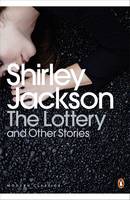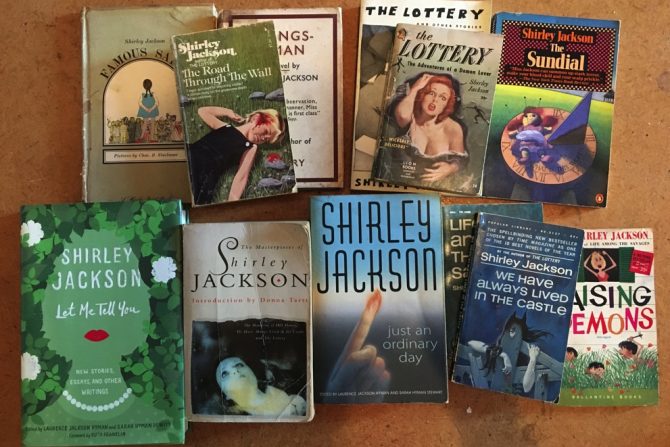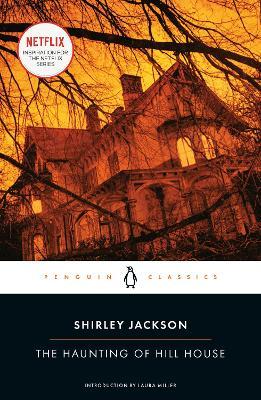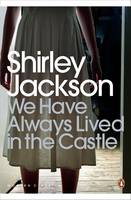It's Halloween and there's a literary festival on - it would be tempting The Fates NOT to have some kind of horror-themed event, wouldn't it?
It would. So we can all give a sigh of relief that those in charge of the WORD Christchurch Spring Festival 2020 were mindful of what was at stake.
This was a hugely enjoyable session, and I don't even think you'd need to be overly familiar with American writer Shirley Jackson's work to think so. It turns out I really love being in a room with people who have a huge amount of love for something talking with great enthusiasm to each other about it. I can relate to that kind of fannish enthusiasm myself, and I recognise the excited way fans will talk over each other, pick up each other's arguments, focus acutely on some tiny aspect a more casual observer would completely miss, agree with one another's superlatives, and just generally offer an affirmation along the lines of "Yes, this thing we love really IS great".
The assembled "Geeks of the Supernatural" were Elizabeth Knox, Erin Harrington and Jonathan King, all well-credentialled with Knox herself having written horror fiction, Harrington having a PhD in Horror film, and King the writer and director of horror film Black Sheep and 2009 Under the Mountain movie adaptation. Broadcaster and writer Noelle McCarthy posed questions and fangirled as hard as any of them.
 They started off with a discussion of The Lottery, a tale of bucolic small-town America with a darkness at its core.
They started off with a discussion of The Lottery, a tale of bucolic small-town America with a darkness at its core.
First published in 1948, Knox suggested that given what had been seen in WWII Jackson had a real world example of exactly how very nice, pleasant neighbours could also collude with a system of violence, King agreeing that a lot of the themes in Jackson's stories centre on "the absolute torture of having to go along with good manners". Knox helpfully reminding us that real predators exist in the world and "...we become their prey because of our own civility".
The discussion later circled back around to The Lottery with Harrington making a similar point but from a different perspective stating that in Jackson's work "...conformity is a dark pleasure..." that allows people to indulge in heinous acts once they can see that the people around them will come along for the ride.

So far, so disconcerting.
The Lottery sometimes elicited strong responses from those who read it with Jackson receiving harsh criticism in some cases, one of which got the following typewritten response:
Dear Mrs White,
If you don't like my peaches, don't shake my tree.
Sincerely,
Shirley Jackson
Some readers weren't so much outraged by the story as they were morbidly curious (and confused), writing to Jackson to enquire where and when the next public stoning would be happening.
The "book club" also discussed her novels, particularly The haunting of Hill House and We have always lived in the castle. Both of these have recently served as inspiration for a pair of Netflix series' though the gathered opinion was that they weren't particularly true to Jackson's stories, less adaptation than "inspired by" and definitely inferior to the 1963 Robert Wise directed film*, The Haunting, a short clip of which was played, to very spooky effect (I have officially sworn off ever decorating any room with textured wallpaper).
Knox was quick to point out that this scene in the film - in which the protagonist, Eleanor, is terrorised by ghostly noises in the night while holding the hand of someone she believes to be her roommate - is incredibly close to how it is written in the book and that the cleverness of Jackson is in distracting you into thinking the horror is in the disembodied voices, when in fact it's in the realisation, once the lights come on, that the hand Eleanor was holding didn't belong to a living person. "The scariness," Knox gleefully remarked, "just stalks you."
Gulp.
The domestic life of Jackson was up for discussion too with Knox disappointed that the recent biopic, Shirley, (starring the always watchable Elisabeth Moss) didn't really mention her 4 children, and that Jackson had an awful lot on her plate given that her husband (literary critic, Stanley Hyman) didn't even fill his own pens. There seemed to be agreement in the book club that you get a sense of this in her Life among the savages stories which on the surface are fairly light "slice of life" fare but have an undercurrent of simmering resentment that surely must have been part of their appeal to the readers of Good Housekeeping, where they first appeared.
This was a really interesting, entertaining session and one that has me keen to read more of Jackson's work... but only with the lights on.
*Later King noted that Wise's next directorial outing was The sound of music, which has me now wondering what a darker reworking of that film would have looked like with its strict disciplinarian parental figure, rise of fascism, and intimidating nuns. Yikes.
More information
- WORD Christchurch website (for the full programme and info about authors)
- Follow WORD Christchurch on Twitter and Facebook
- Read our WORD Christchurch Spring Festival 2020 coverage







Add a comment to: WORD Christchurch: Halloween Book Club: Shirley Jackson